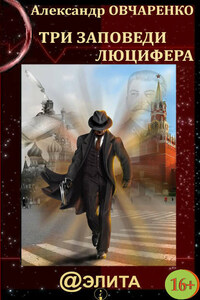“You want a yarn. You shall have one,” said a young friend of mine, a midshipman, who had just returned from a four years’ cruise in the Pacific. “I am not a good hand at describing what I have seen, but I can narrate better the adventures of others which they have told me: – ”
We had visited a good many islands in the Pacific, engaged in settling the disputes of the natives or trying to settle them, punishing evil doers, supporting the consuls and missionaries, surveying occasionally hitherto unknown harbours, and endeavouring to make the British flag respected among the dark-skinned inhabitants of those regions.
I with another midshipman and a boat’s crew had landed on a beautiful island of the Western Pacific to bring off a cargo of cocoa-nuts and breadfruit with which the natives had promised to supply us. Two of our men had straggled off against orders into the interior. While waiting for them we saw the signal made for our return. Unwilling to leave them behind, we ourselves unwisely started off to look for them. The natives gave us to understand that they were a little way ahead, so we pushed on hoping to come up with them and bring them with us.
A considerable time longer than we expected was thus occupied, and when having at length overtaken them we got back to the beach, we found that a strong breeze had set in, and that so heavy a surf was breaking on the shore that it would be extremely dangerous passing through it. Still the signal was flying and the order must be obeyed.
We shoved off, but had not pulled many strokes before a succession of tremendous rollers came roaring in, turning the boat right over and sending her back almost stove to pieces on the beach. Had it not been for the natives who swam to our rescue, we should probably have lost our lives.
Wet through, and half-drowned, we were dragged on shore. It would have been madness to have again made an effort to get off. All we could do, therefore, was to haul our sorely battered boat out of the reach of the surf and to collect the portion of our cargo washed up on the sands.
Although it was tolerably hot we felt that we should be more comfortable than we were if we could shift our wet clothes. The garments worn by the natives could assist us but little, seeing that most of them wore only somewhat narrow waist clothes. They made us understand, however, that not far off we should find the house of a white man, who would perhaps afford us accommodation. Why he had not yet hitherto made his appearance we could not tell, but we determined to visit him and claim his hospitality. Led by the natives, we proceeded some distance along the beach when we came in sight of a hut, larger and more substantially built than the other habitations around. Just inside a porch at the entrance of the hut, an old white man, dressed in shirt and trousers, with a broad-brimmed straw hat on his head, was seated in a roughly made easy-chair with his feet resting on the trellis-work before him. A large wooden pipe was in his mouth, from which he was smoking lustily. He seemed scarcely to notice our approach, and when we addressed him he enquired in a gruff voice where we came from and what we wanted. We told him what had happened, and asked him if he could give us shelter, and lend us some garments while our clothes were drying.
“As to that, young gentlemen, you shall have a shirt and a pair of duck trousers apiece, and such food as there may happen to be in my store-house,” he answered, seeing by our uniforms who we were. “Your men shall be looked after also.”
We were soon seated round his cooking stove inside the house, rigged out in the garments he had provided while our own clothes were hung up to dry. A native girl attended us, obeying with alacrity the old man’s commands. We supposed her to be his daughter, and spoke of her as such.
“No, you are wrong in that, I have no child,” he observed. “She is my wife. That,” pointing to a thick stick which rested on a stool near him, “served as my marriage lines, it makes her as sharp and attentive as I can wish, and keeps her in good order.”
I had suspected from the appearance of the old fellow that he was a ruffian; I had now no doubt that he was a thorough one; and I felt sure that had he dared he would not have scrupled to hand us over to the natives should they by chance demand our lives. A man-of-war in the offing, though she might be driven away for a few days, afforded us perfect security with such a character.
At first he was not disposed to be communicative; he kept beating about the bush to ascertain apparently whether we knew anything about him, and had come to call him to account for any misdeeds of which he might have been conscious. When he discovered that we were not even aware that a white man resided on the island, he opened out more freely. I was curious to know something about him, and, concealing the opinion I had formed of his character, tried to induce him to talk of himself; that he was an old sailor I could see at a glance.














